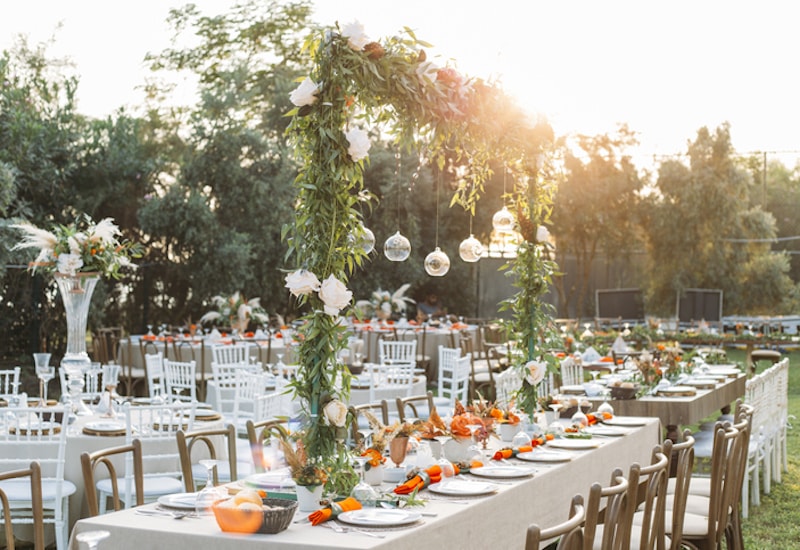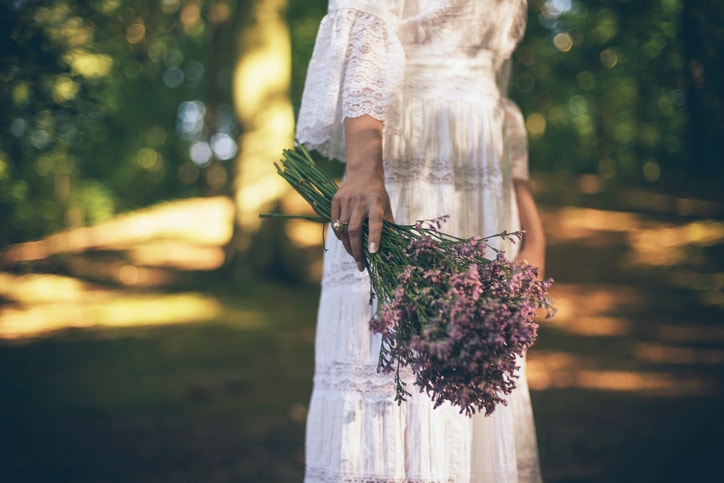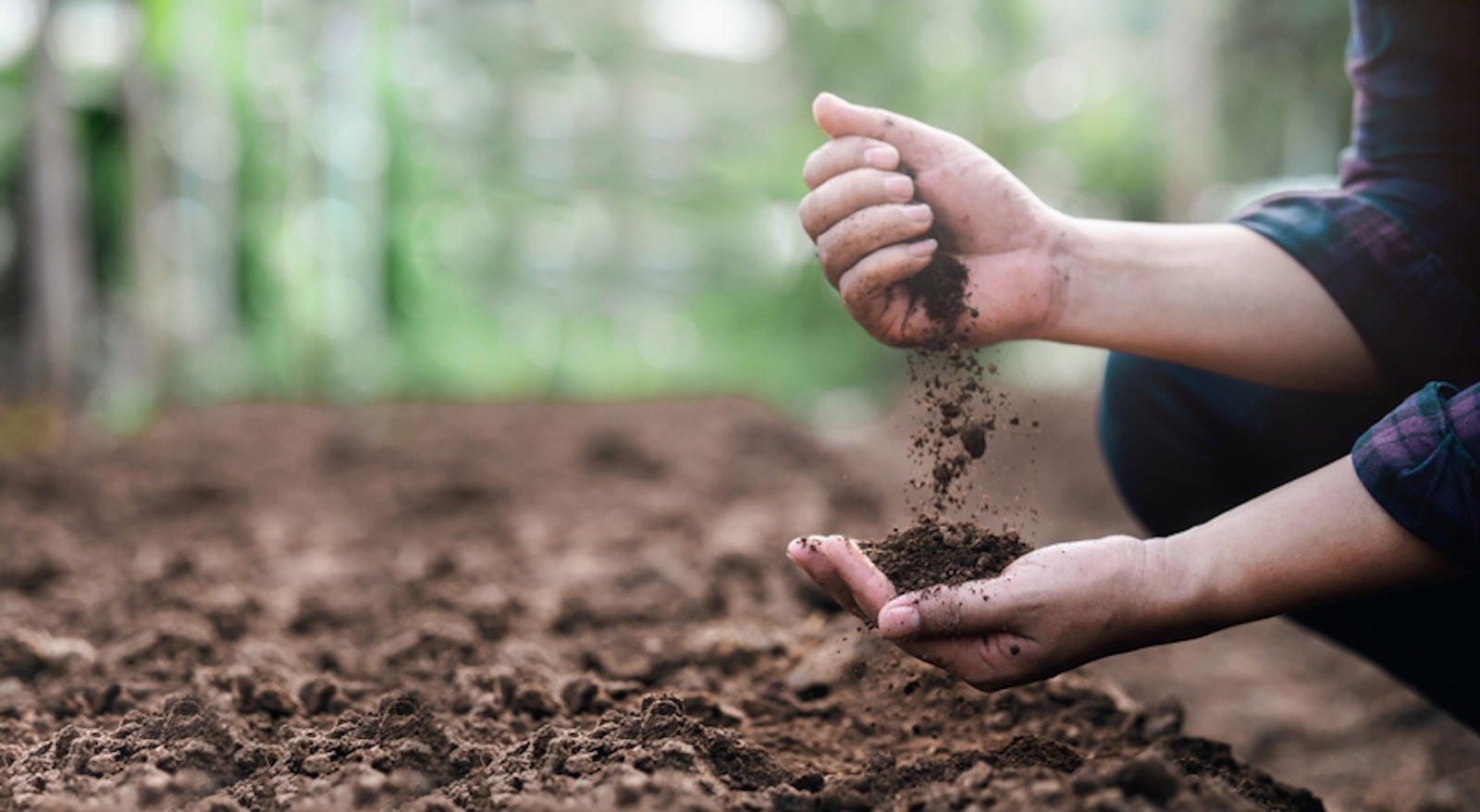Tuesday, May 9, 2023
We are coming up on a special time of year in Spain: wedding season. According to the industry website bodas.net, the busiest time of year for weddings in our country is the period from late spring to late summer. September is the most popular month, followed closely by June, July and May.
Along with the wedding boom, it's a popular season for events like first communions and any party or celebration that people want to hold outdoors, taking advantage of the warm weather. Whatever the case, these are months full of special decorations, suits and dresses for one-off occasions, big gifts and endless choices that are not always entirely sustainable. Amid the public’s growing concern over climate change, these events are a great opportunity to act in an environmentally responsible manner.
This is why eco-weddings have been growing strongly in recent years. For anyone who is planning a wedding, here are some tips to make your big day as sustainable as possible.
Food: local, seasonal and zero waste
Sustainability starts with one of a wedding's main attractions: the food. Make sure that any food served at your wedding has traveled the shortest distance possible. To this end, it is advisable for any wedding to have locally sourced food. In fact, the Ministry of Agriculture, Fisheries and Food has a search engine you can use to find local suppliers across Spain. Also, instead of going against nature, it's better to opt for seasonal foods.
As we all know, after weddings, there are always leftovers. To avoid food waste, what better than giving some of that food to your guests to take home in a container? That said, this “lunch box” should be made of glass or aluminum, which brings us to another important point: any eco-wedding should do without plastics as much as possible. As for water, the most sustainable choice is to always serve tap water, never bottled.
Clothing: recycled, thrifted and/or weather-appropriate
Wedding attire is always a delicate subject. First of all, the bride and groom usually want to wear new clothes, but as they are well aware, this means splurging on a garment that they will probably only wear once in their lives. If they want to go for more sustainable clothing, they can rent their attire or buy (and then sell) them at a thrift shop. Case in point: Humana stores have put 500 second-hand wedding dresses on sale starting at 100 euros. And if you're worried about what others might think and prefer to wear something new, you can turn to designers like Larca, which recycles old and vintage dresses.
For guests, wearing the right outfit is no minor issue, especially for men, who, according to traditional rules, must wear a suit or tuxedo jacket that they cannot remove until the reception is over. This usually has an obligatory consequence: you have to crank up the AC. Guests can also opt for the alternatives mentioned above, but there is a much simpler solution: the bride and groom can establish an informal dress code, so that no one has to wear extra layers of clothing, and they can keep the AC off or at least turn it down.

Sustainable gifts for guests
Gifts for guests are not a must, but they are pretty commonplace. And in fact, even this detail can be sustainable. Here’s an idea: why not give them plants as gifts? No, it’s not about giving them a pot to take home. Many companies, such as Seedball Factory, sell easy-to-carry seed capsules. Once at home, just put them in a pot and water them, and before long, the plant will start to grow.
In this area, you are spoiled for choice. A quick search online brings up endless ideas for fully sustainable gifts: handmade chocolates without plastic packaging, bamboo toothbrushes, ecological or DIY cosmetics, solar light bulbs, pencils with seeds...
Wedding venue: go for natural spaces
A good starting point is to consider that, at these types of events, floral elements are usually popular, so what better than a natural space? If your wedding venue is an urban terrace or a reception hall decorated with flowers, once the event is over, those flowers will have very little future. That’s why it’s better to opt for country estates or open, natural spaces (for large budgets) or, at the very least, indoor or outdoor gardens (for more modest budgets). That way, you won't have to alter the space, and the natural elements will last long after the celebration is over.
Light, by the way, is no minor ingredient. Having a nighttime wedding usually means a show of lights and colors to impress friends and strangers, but obviously, the energy consumption skyrockets. By holding your wedding during the daytime, you can be more energy efficient while enjoying the natural light.
Alternatives to flower bouquets, rice...
These two elements seem essential at any wedding, but that does not mean they are irreplaceable. Let's start with the bridal bouquet: except in very specific cases, those fresh, cut flowers will be dead a few days after the wedding. As an alternative, you can choose bouquets of fresh herbs (lavender, rosemary...), which last much longer than flowers and can even be used for cooking. Other alternatives are edible flowers from Organic Home Garden or fabric flowers from Tocados y Abalorios.
On the topic of food waste, it goes without saying that you might want to have your guests throw something other than rice. Instead, they can opt for dried petals or, to be more original, biodegradable confetti or even bird seed, which can be purchased at any bird store.
As you can see, the options are almost endless, but all of them have the same objective: to turn weddings, no matter how tradition-bound they may be, into sustainable, eco-friendly events. Here’s to the bride and groom!
¿Te ha parecido interesante?





